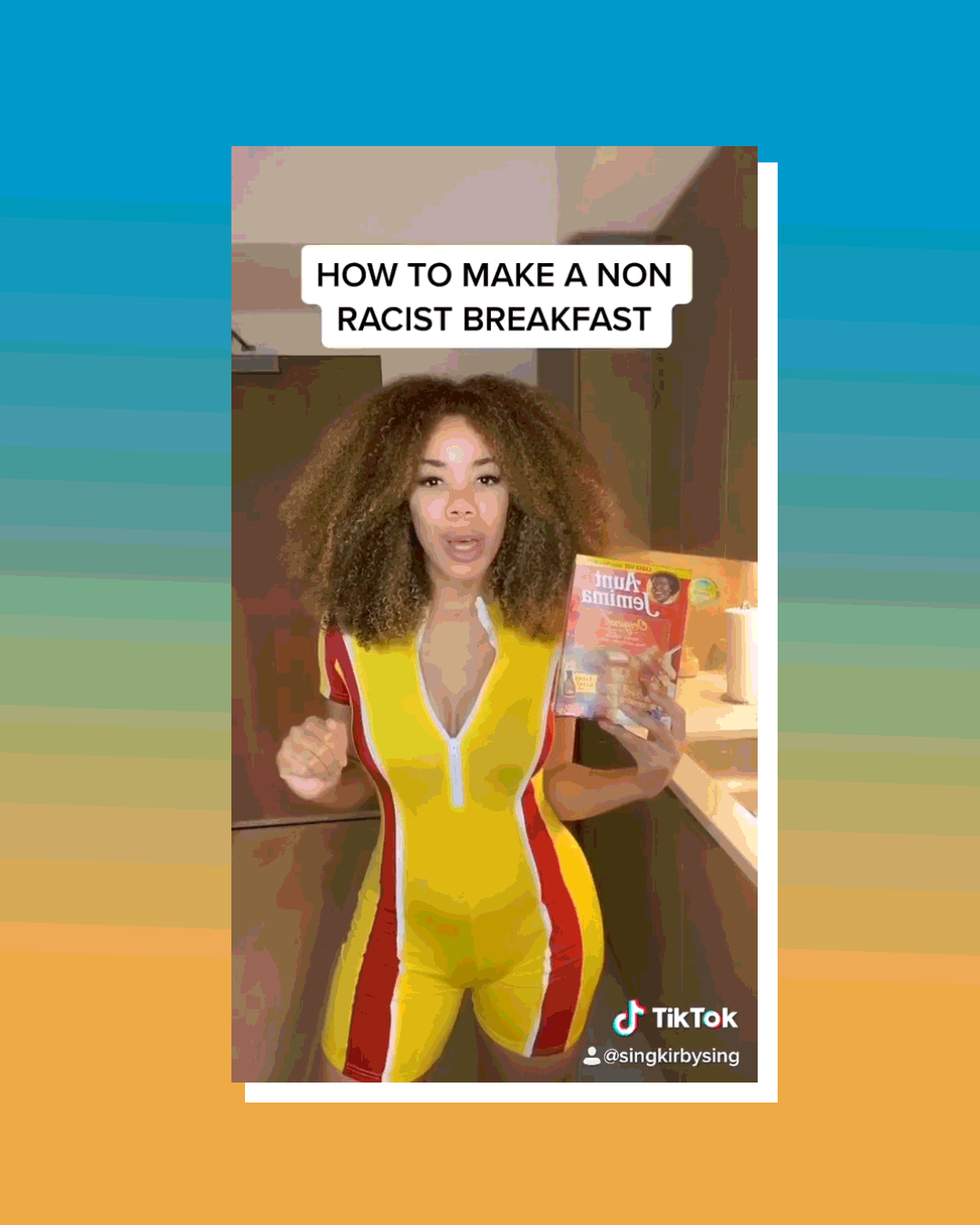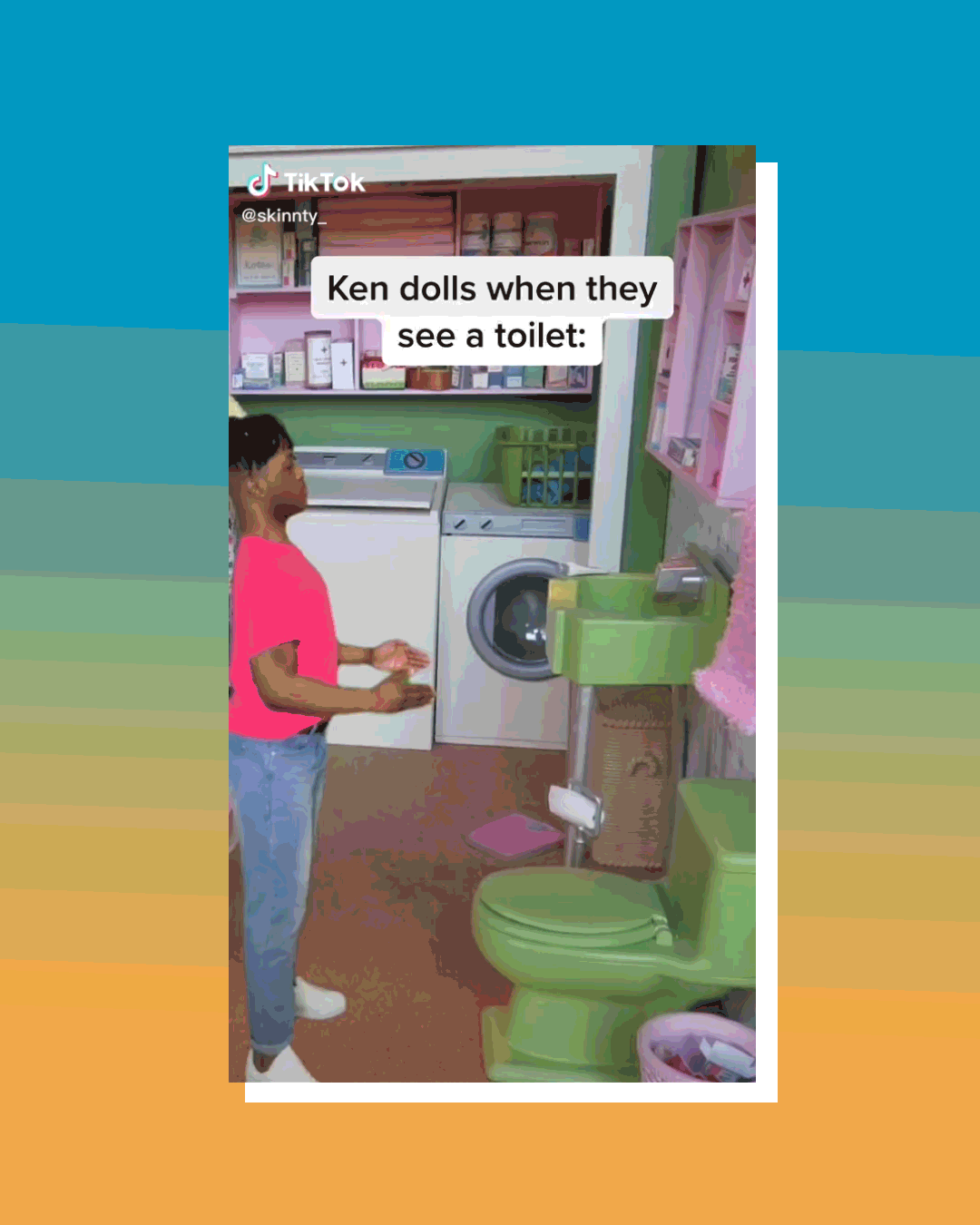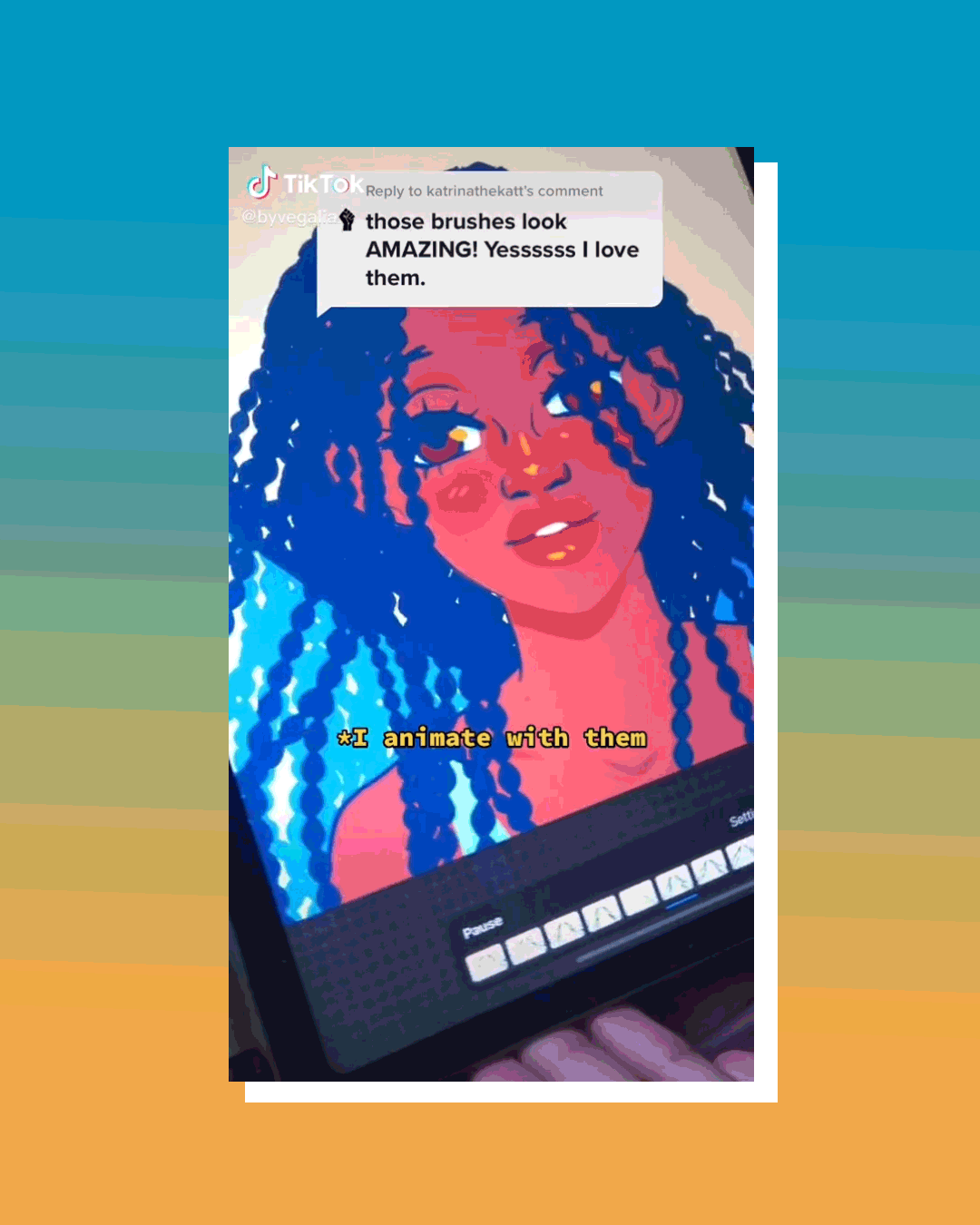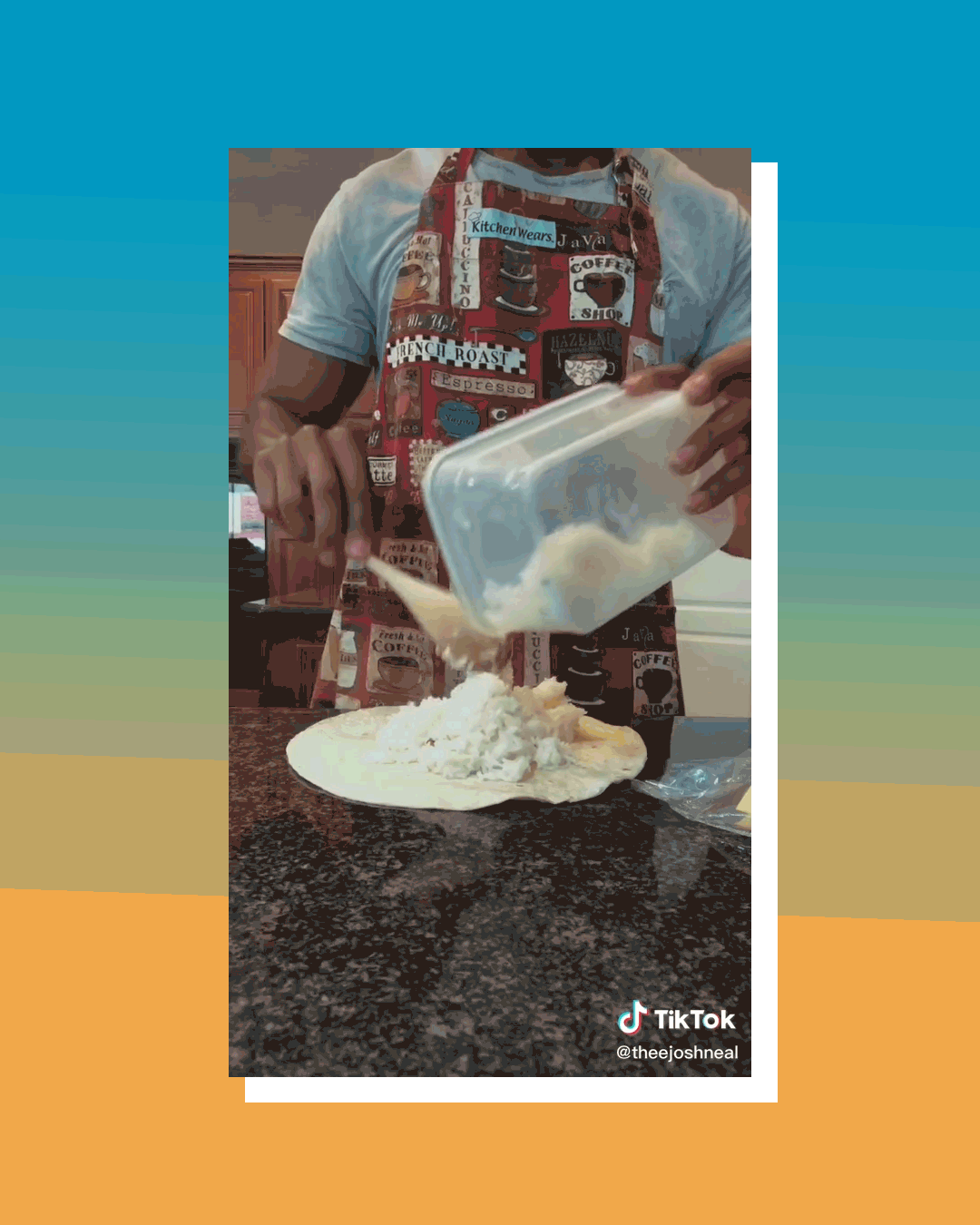
Inside TikTok’s effort to open doors for its Black rising stars
At first, Kirby Dockery found the thought of joining TikTok overwhelming. There were so many questions: “How do I record? What’s the beauty effect? How do I do green screen?” But she quickly proved to be a natural.
Her Black history videos — take her explainer on the origins of the Aunt Jemima logo, for instance — and glimpses into her career as a singer and songwriter who worked with the likes of Rihanna gained Dockery 250,000 followers. In January, she applied for a new TikTok incubator, a three-month program specifically aimed at helping Black TikTok users build their brands on and off the platform.
From late February to early May, the program’s 100 participants attended bi-weekly training sessions and town halls, went to breakout sessions with TikTok staff and entertainment and music officials, and networked with their fellow rising Black stars.
“It just really created a way for us to feel like we’re a part of something that can be bigger than just doing TikTok,” she said. “This is a brand. You’re not just making videos; you’re making your brand. You’re telling your story, and you have to be very intentional with everything that you upload.”

Kirby Dockery’s June 2020 TikTok on the racist history of the former Aunt Jemima logo was watched more than 3 million times.
(Kirby Dockery/@singkirbysing)
The program grew out of last year’s nationwide protests against police brutality and criticisms that TikTok had suppressed Black Lives Matter content in the wake of George Floyd’s murder. (TikTok said this was due to a glitch.) More broadly, many Black creators felt ignored by the app’s algorithm and targeted by its moderation rules.
TikTok released an apology last June to members of the Black creator community who felt “unsafe, unsupported, or suppressed” by the app, and vowed to take steps to improve Black creators’ experience on the app. One step was establishing a program to recognize and uplift diverse voices.
When TikTok announced the incubator in January, the company said it wanted to “focus on nurturing and developing” the creators and help “open doors for them to reach new heights in their careers.”
“One of the areas of feedback that we heard from the Black creator community was wanting more representation in the top creator cohort,” Kudzi Chikumbu, TikTok’s director of creator community, said in an interview. “That insight was the kernel for the building on this program, which was: How do we help not only give Black creators the tools to succeed on TikTok … but translate that into a career and a livelihood that is successful — yes, on TikTok, but beyond that.”

Jesse Lago uses animation, puns and visual gags to create his signature style on TikTok.
(Jesse Lago/@Skinnty_ )
Other platforms — including YouTube and Facebook — operate similar programs aimed at elevating the Black creatives who are often the driving force behind trends but trail when it comes to opportunities and recognition.
“Programs for Black creators are necessary and appreciated, as we must over-index our support of Black creators and all creators who are traditionally marginalized in order to fight societal and algorithmic racism,” Karyn Spencer, the global chief marketing officer at influencer company Whaler, said in an email. “However, many Black creators have told me their ultimate desire is not to be selected for a program of support because they’re a Black creator, but because they’re a good creator.”
Making friends, and brand deals
More than 3,000 creators applied to the program within 24 hours of when applications opened in mid-January. (More than 5,000 people applied overall, according to a TikTok spokesperson.) The criteria were simple: Applicants needed to be at least 18, be based in the United States and have at least 10,000 followers. The company also tried to select people who represented the broad range of interests reflected on the app.
“I think all signs are pointing to looking at continuing/expanding the program,” Chikumbu said.
Each session focused on a different theme: manifestation (how to envision goals and develop strategies to achieve them); identity (defining your brand); hustle (learning how to plan ahead and understand your audience); expand (build a team); elevate (self-promotion); and reflection.

Vegalia Jean-Pierre said she hopes her braid brushes will make it easier for artists to include more diverse characters in their art and animation.
(Vegalia Jean-Pierre/@byvegalia)
For Vegalia Jean-Pierre, a 27-year-old artist from Minneapolis, the program gave her the motivation to start selling her braid brush pack, a set of digital drawing tools that makes it easier to draw Black hairstyles like braids, locs and twists. A bit of advice from the seminars stuck with her: Being a content creator isn’t a solitary task; it requires building a team and a community.
“I don’t know if I would have launched my brushes without the program, honestly,” she said.
The structure of the program — including a bi-weekly assignment to produce six videos — helped 22-year-old Jesse Lago land his first sponsored content deal. Lago — whose videos feature parodies, animations, visual gags, digital art and transformations — went viral in March thanks to a series of wordplay videos using a Nicki Minaj verse.
Lago, a nursing student from Milwaukee, said he tends to be “very scared of money and business.”
“When things start to get serious, I’m kind of like, ‘Oh, ooh.’ I started to panic,” said Lago, who posts under the handle @skinnty_.
The incubator helped set him at ease. There was no reason to be so afraid of the business side — “especially if you want to pursue it as a career,” he said.
TikTok partnered with Macro, a production and media company dedicated to storytelling that centers people of color, and heard from founder Charles King and chief brand officer Stacey Walker King. Other guest speakers included actresses Gabrielle Union and Marsai Martin, radio host Charlamagne tha God and beauty YouTuber-turned-entrepreneur Jackie Aina.
Several creators said the networking opportunities were invaluable. Not only were they able to mix it up with celebrities, they had other, like-minded creators to draw inspiration from.
Program members bonded over weekly Zoom happy hours and breakout rooms. They messaged each other through Discord, an instant messaging and digital distribution platform, and talked in private in a Clubhouse room they formed. They shared legal advice, sample media kits, tips on talking to potential agents or collaboration partners and the stresses of turning a hobby into a career.
“Hands down, the greatest part of this program are my fellow creators,” said Ugo Lord, a 31-year-old lawyer based in Los Angeles who participated. “There’s nobody that’s like, ‘Oh, my gosh, this is a trade secret,’ or ‘Oh, no, I can’t tell you about this,’ or ‘I can’t tell you about that.’”
Members with hundreds of thousands or even millions of followers freely offered advice to those still gaining ground in the app. Jason Linton, a 42-year-old from Altus, Okla., shares videos about life with his three adopted children to his 6.4 million followers at his account @DadLifeJason. He played a similarly paternal role in the group, where he often weighed in on creators’ frustration or concerns about views and pressures to perform.
“My answer to that was try to find that one thing that makes you feel authentic,” he said. “You can see people do things and they might get more views, they might get more opportunities, but nobody can be you, and if there’s something that is for you, then it’s coming for you, no matter what the views are looking like.”
Black creators and the community guidelines
Joshua Neal, a 31-year-old actor from Hayward, Calif., is known for creating dramatic re-enactments of everyday activities like ordering a burrito from Chipotle. Neal joined the program because he was frustrated with the app’s algorithm and moderation policies and wanted to meet other Black creators who might be having similar issues.

In one of his most popular TikTok videos, Joshua Neal dramatized the experience of ordering a burrito at Chipotle.
(Joshua Neal/@theejoshneal )
“I feel like a lot of Black creators are getting half of the numbers that they should, half of the views they should be getting, half of the likes they should be getting,” he said.
Some of Neal’s hopes for the program didn’t pan out. He did not leave with an agent, one of his goals, and the platform’s content moderation system was still unclear to him. A few days before the program ended, he posted one of his most popular TikToks yet — a video of himself re-enacting what it’s like to be front-stage at a rap concert. TikTok muted the sound on the video, likely due to profanity in the song, he said. “It can be discouraging at times because you work really hard on these videos,” he said.
Though Neal’s thoughts on the app’s content moderation system are unchanged, he praised the incubator program, which he said helped change the way he approaches his career as a TikTok user, a content creator and, soon he hopes, an actor. He spent his time learning a lot about branding, social media etiquette and manifestation — specifically that he needed to follow up on his goals with positive energy and believe that his ideas would win people over.
“I really started manifesting after we had a whole segment on that, and I think that really helped out a lot to be honest,” he said. “I’m always thinking about what I want on the positive side of things. ‘Yes, I do think this manager or this agent would sign me’ or ‘Yes, I do think I would get this role.’ I’m just trying to really just invest in myself as a positive person.”
Stay connected with us on social media platform for instant update click here to join our Twitter, & Facebook
We are now on Telegram. Click here to join our channel (@TechiUpdate) and stay updated with the latest Technology headlines.
For all the latest LifeStyle News Click Here
For the latest news and updates, follow us on Google News.

